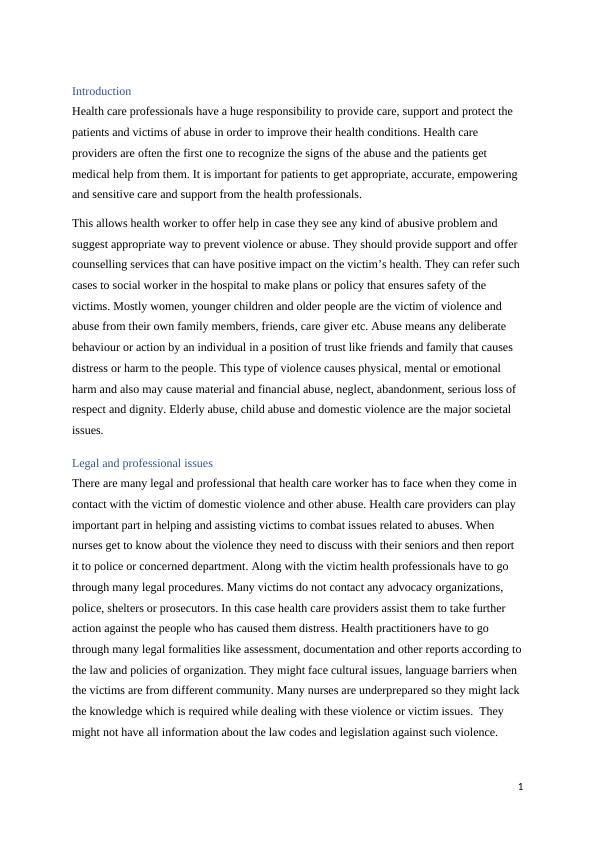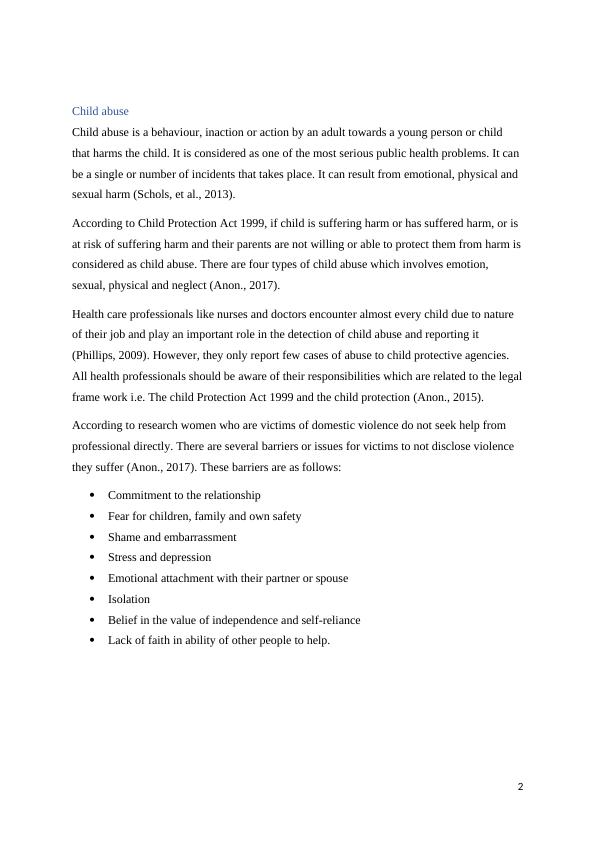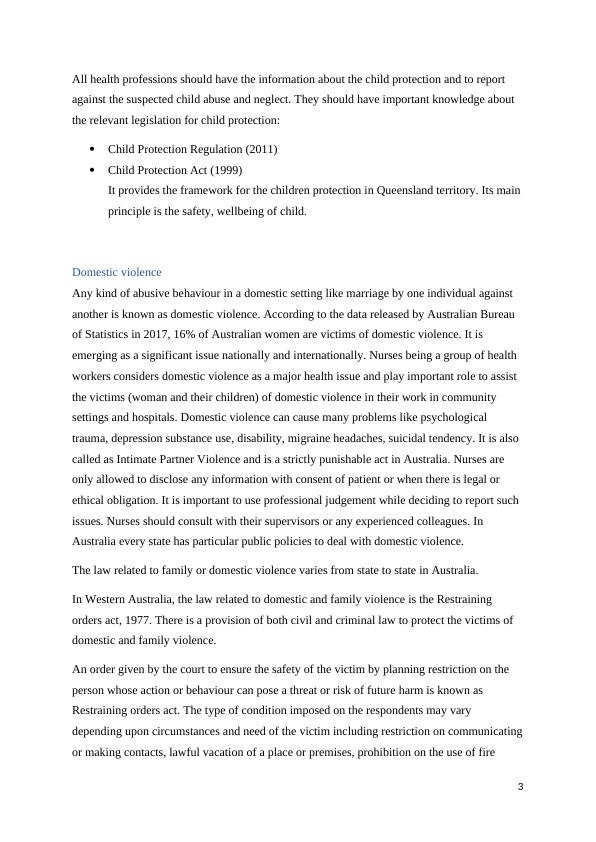Domestic Violence and Child Abuse: Implications for Healthcare Workers
7 Pages2462 Words216 Views
Added on 2023-06-13
About This Document
This article discusses the legal and professional issues healthcare workers face when dealing with domestic violence and child abuse. It covers the different types of abuse, relevant legislation, and documentation requirements. The article also explores the implications for healthcare delivery and patient care.
Domestic Violence and Child Abuse: Implications for Healthcare Workers
Added on 2023-06-13
ShareRelated Documents
End of preview
Want to access all the pages? Upload your documents or become a member.
Ethics, Values and Dilemas in Social Work Practice Introduction of Children and Families
|15
|5544
|333
(PDF) Domestic violence in the COVID-19 pandemic
|19
|6271
|145
FAMILY CENTERED HEALTH PROMOTION 2. er: FAMILY CENTERED HEALTH
|3
|429
|34
Understanding the Role of Forensic Nurses in Child Abuse and Neglect: A Comprehensive Overview
|8
|1660
|364
Safeguarding and Management Risk Across the Lifecourse
|9
|2989
|72
Key Social Policy and Legal Issues for Social Work Practice
|7
|1936
|1



